|
4/1/2020 I'd like to think that everyone who enters my classroom knows that I'm there to teach the Living Environment Curriculum to them and they are there to enthusiastically absorb all of that good learnin'! Alas, this is not the case. Many of my students prefer socializing or sleeping or playing with their phones. With this post, I will describe my "proper prior planning". These are the methods I use to encourage students to actively engage with their learning resources. You MUST plan if you want students involved purposefully---and not just with "busy-work" 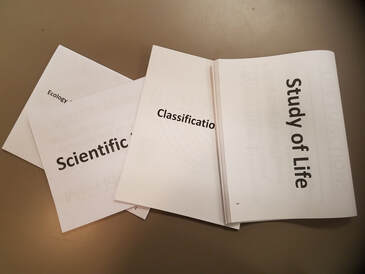 Give students a resource that they NEED to complete other assignments: To get students ready for their final, currently the NY State Living Environment Regents, I break down the curriculum into ten units. I created a PowerPoint Presentation, with vocabulary, diagrams, and illustrations, for each of those units. I use the prez to lead class discussions as students take notes in their matching packet. The presentation file also acts as my plan book because it cues me as to when the best time is for students to complete labs or other assignments. Give students assignments that MATCH their resource. 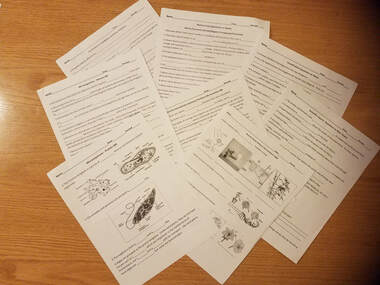 Students are taught that their note packets are their resource that they will need to complete future classroom assignments. For example, each of the units has exercises called “Questions on Notes” or QN. The amount of information contained in the unit determines the number of QNs there are. In larger units, a QN will typically cover 20-30 pages of the note packet. The questions in each QN are scrambled so the more students search for information, the more they become familiar with the topic. Students also need their notes to complete other assignments, as well as each unit’s Review Crossword Puzzle and "Write Abouts". The notes are more simplified and concise than a textbook and focus on what students need to understand for the Living Environment Regents. These are guided notes which are intended to develop student’s ability to remember and understand biology concepts. Although some QNs may have a couple of analysis questions or may require students to create an idea, the majority of the QNs deal with building foundational knowledge. Once you have taught students to work quietly and productively with "brains on" activities in your classroom, add some purposeful "hands on" activities. 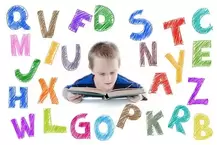 Like many teachers, I work with students with diverse abilities, some with very limited reading skills. During some class time, students are asked to evaluate or create by doing “hands-on” activities or manipulate lab equipment. Other times it's important to have a calm, learning environment where each student is independently and actively engaged with their work. This is necessary for them to develop a foundational understanding of the subject matter. I developed the Teacher Prez / Student Notes, along with the QNs, for students to demonstrate that they can access their resources for a basic understanding of the material.  Here are my My Teacher Prez / Student Notes packets and here is where you can find all of my QN worksheets. Prior planning with GKC Presentations, Notes, and QNs can help make your classroom a more structured learning environment and encourage students to actively engage with their learning resources. Students who are actively engaged tend to be more behaviorally appropriate and academically successful!
0 Comments
Leave a Reply. |
AuthorGertrude Katz has spent over 30 years teaching K-12 public school students all major subjects. She has taught biology and education at the college level. The majority of her career has been spent instructing biology at the secondary level. Categories
All
|


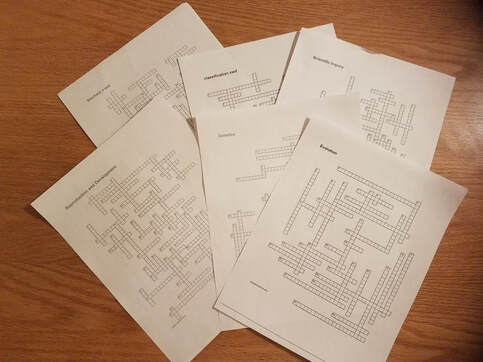
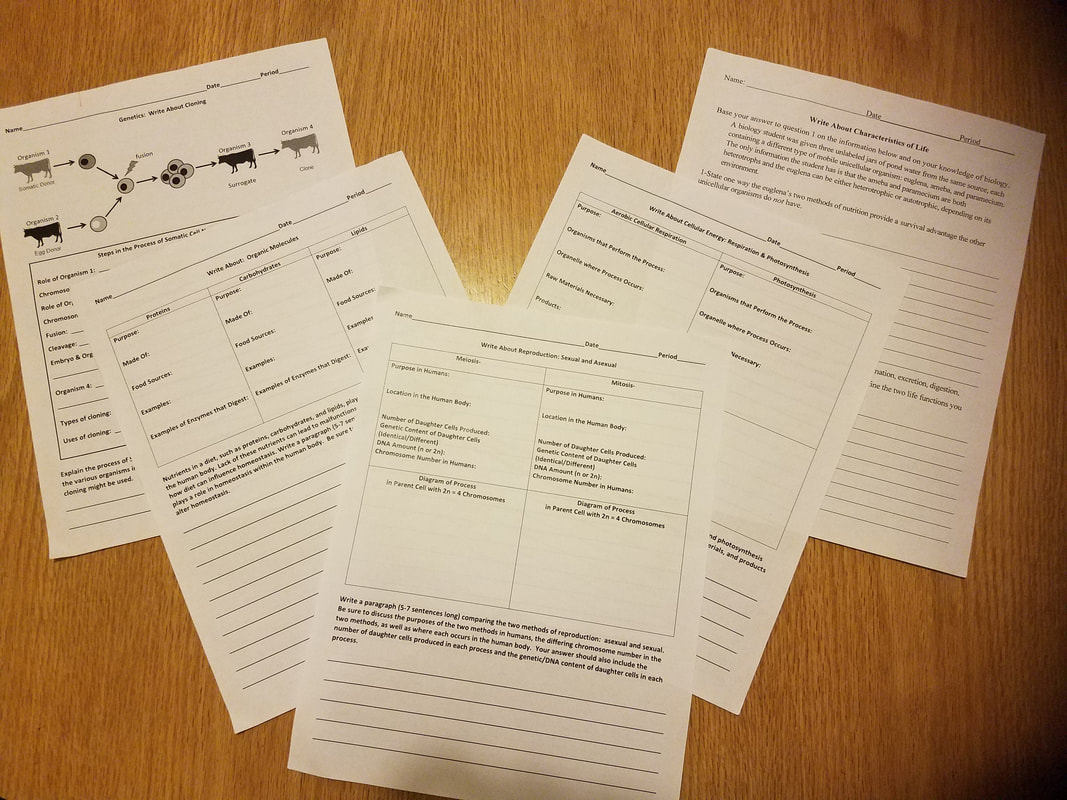
 RSS Feed
RSS Feed